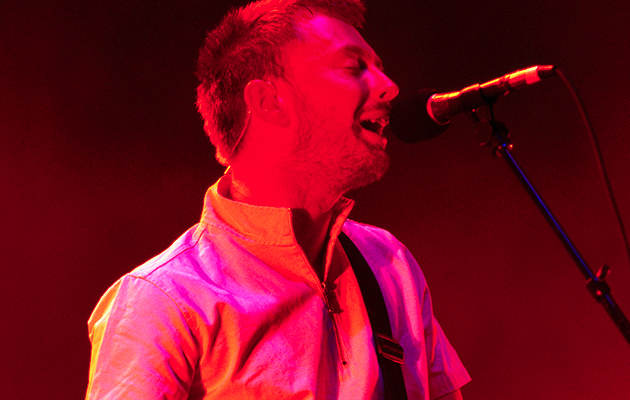Radiohead don’t look like rock stars. More like Edwardian grave-robbers, pre-Raphaelite laudanum addicts, Dickensian consumptives or World War I flying aces. Twitchy, well-spoken, deeply posh English eccentrics to a man. But like it or not, the secret history of British rock has been fought on the playing fields of Eton, Westminster, Abingdon and other venerable public schools. Most privately educated bands dumb down their accents and cover their tracks. But these Oxford oddballs do the exact opposite, almost to the point of Bertie Wooster caricature.
At a riverside London café in spring 2001, affable bass-playing Christopher Walken lookalike Colin Greenwood greets Uncut with sardonic quips about the Tory cabinet, G K Chesterton and “the officer’s mess”. His Jackie O-haired guitar-virtuoso younger brother Jonny likens Radiohead to “18th-Century rakes who live life in the country and go to London to gamble the night away”. Somewhere in the studio complex behind us, guitarist Ed O’Brien, drummer Phil Selway and Thom Yorke are grudgingly selling their souls to Uncut’s photographer.
Although global in reputation, Radiohead are deeply English in person. Middle England is their home, geographically and spiritually. Articulate, literate and soberly dressed in autumnal hues, they could pass for trendy vicars or junior theology professors. The Greenwood family tree is entangled with the Army, the British Communist Party and the socially progressive Victorian liberals of the Fabian Society. Even Radiohead’s political conscience reeks more of puritanical duty than punky passion. It’s church meetings and temperance halls, more Methodism than Marxism.
Radiohead do not inhabit the chippy, colloquial, know-your-place Britpop kingdom of Cocker or Weller. Theirs is not the mythic North of Lennon or Morrissey, nor the fabled London of Brett or Damon. All five belong to an oddly nostalgic Middle England of bracing walks and improving books, cold showers and warm beer, Oxbridge and Ambridge.
But close exposure to Radiohead throws up a distorting mirror against all this comfortingly bookish, tweedy Englishness. Existential alienation, sexual nausea, middle-class guilt, bodily disgust, fear of women, volcanic self-loathing – all of these unsavoury themes, mere background radiation in Radiohead interviews, explode like volcanic pustules across Thom Yorke’s bilious, cathartic lyrics. Middle England turned inside out, stripped of its outer skin, raw and visceral.
Repressed passion and thwarted ambition are the lingering scars of the schoolyard rebel. The kind of upper-middle-class hothouse background that spawned Radiohead may turn out politicians, BBC governors and other Establishment pillars with mechanical ease, but it also throws up square-peg absurdists and prickly class traitors like George Orwell, Peter Cook, Joe Strummer, Stephen Fry and Mark Thomas.
And Thom Yorke. Uncut has been chatting happily with the rest of Radiohead for almost two hours when Yorke is ushered into the café by management minders. Necks noticeably stiffen. The temperature drops a degree or two. Listen carefully and you can hear the singer’s tightly wound internal motor whirring at full speed, ready to snap.
Yorke is bearded and pale, his hair a concentration-camp crop. He wears a duffel coat and shoes seemingly made from Cornish pasties. This is the hair shirt, pastry-shoes chic which divides serious artists from mere pop stars. He slumps down, staring intensely at the table.



